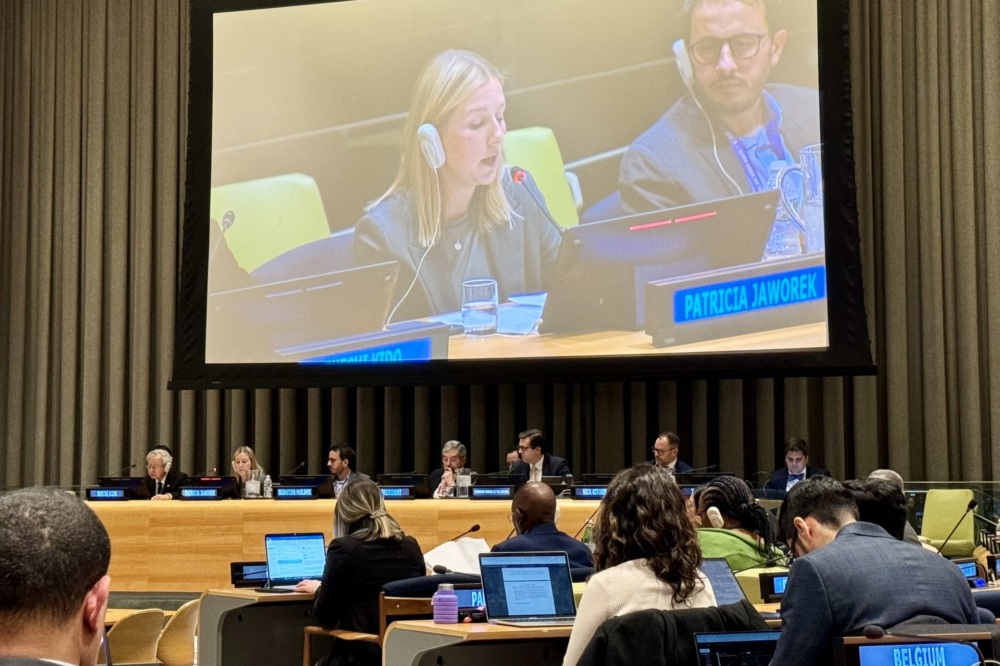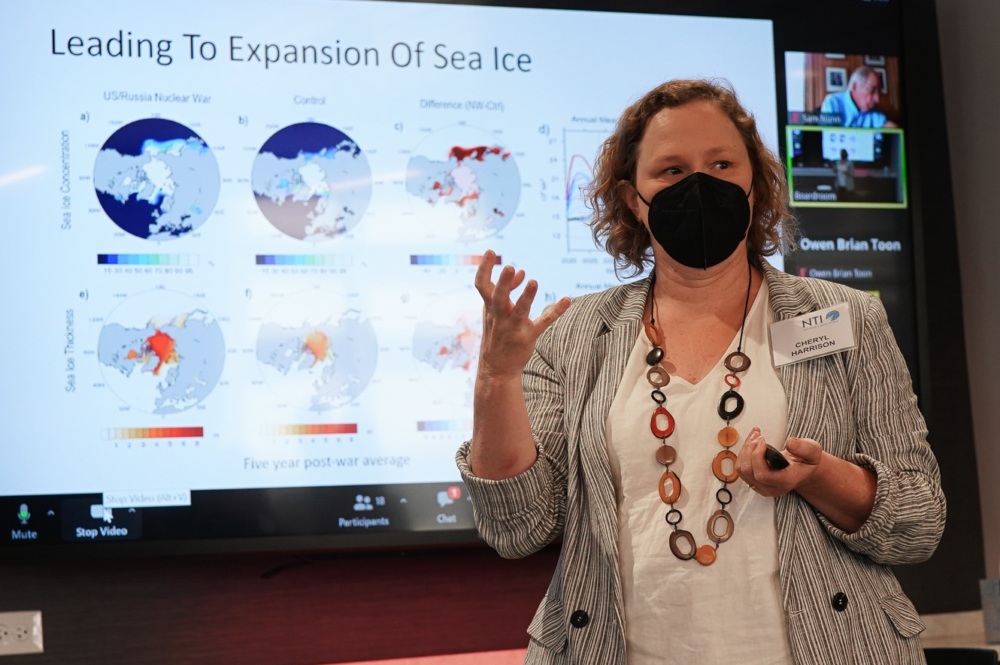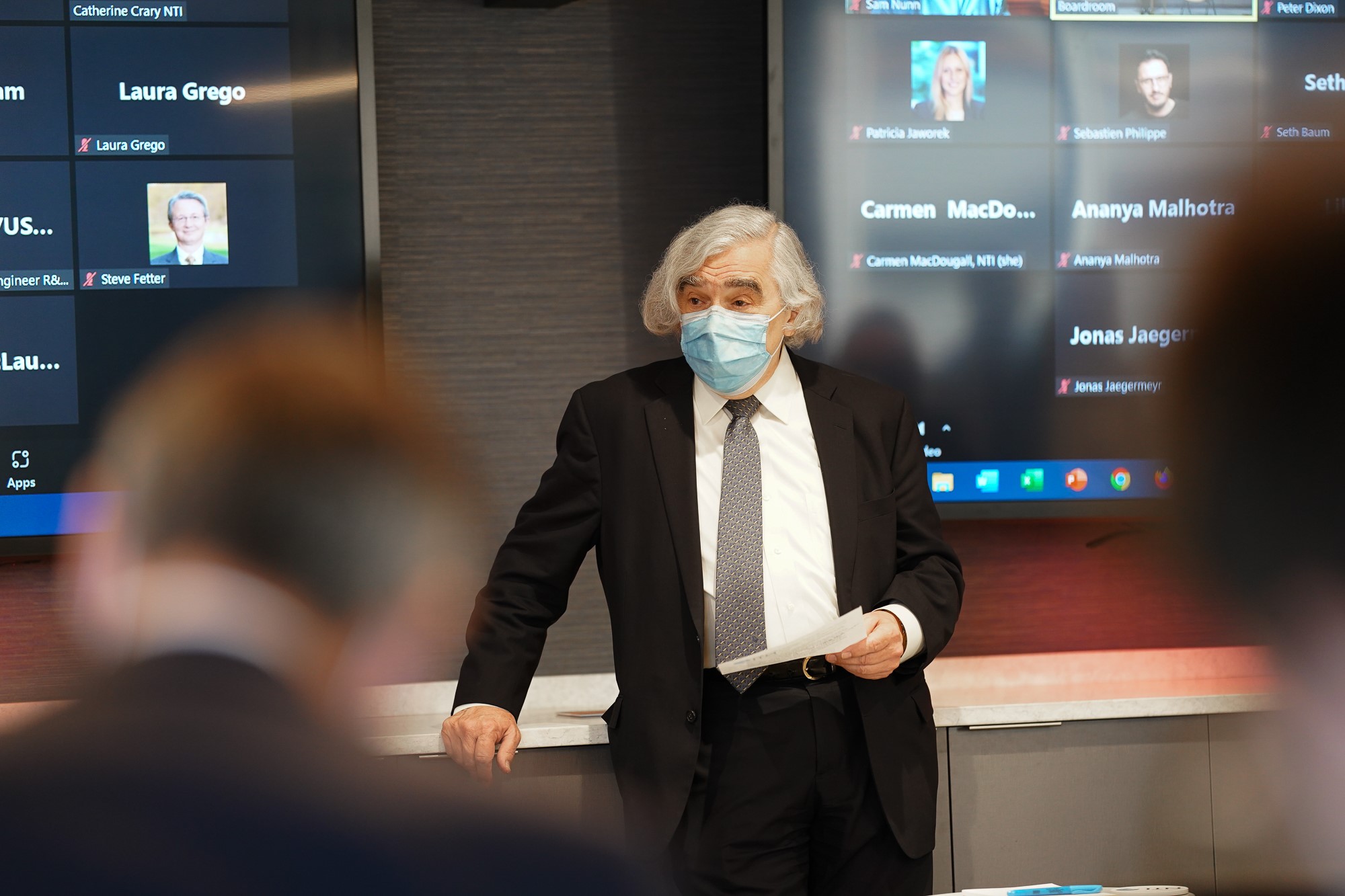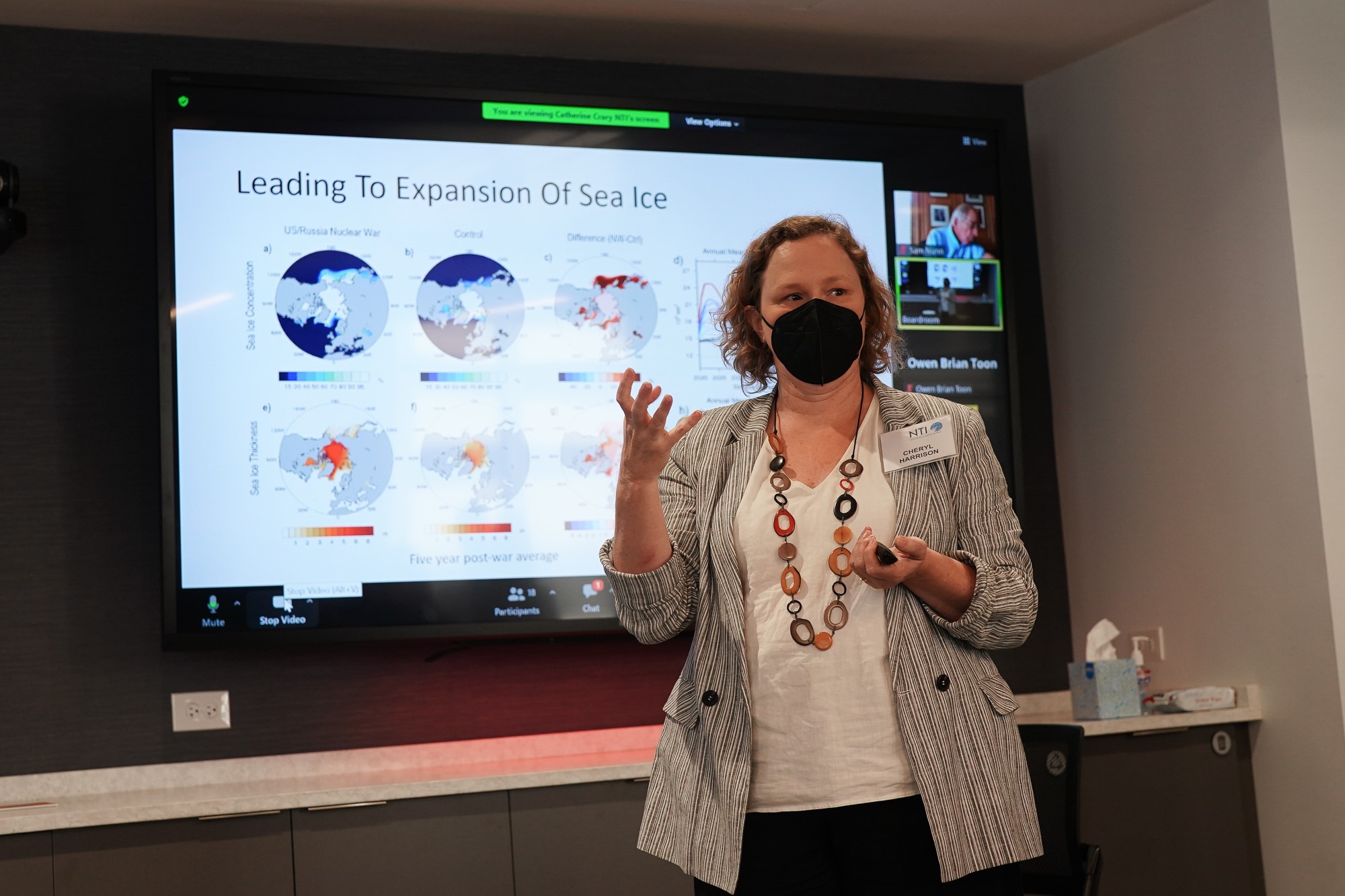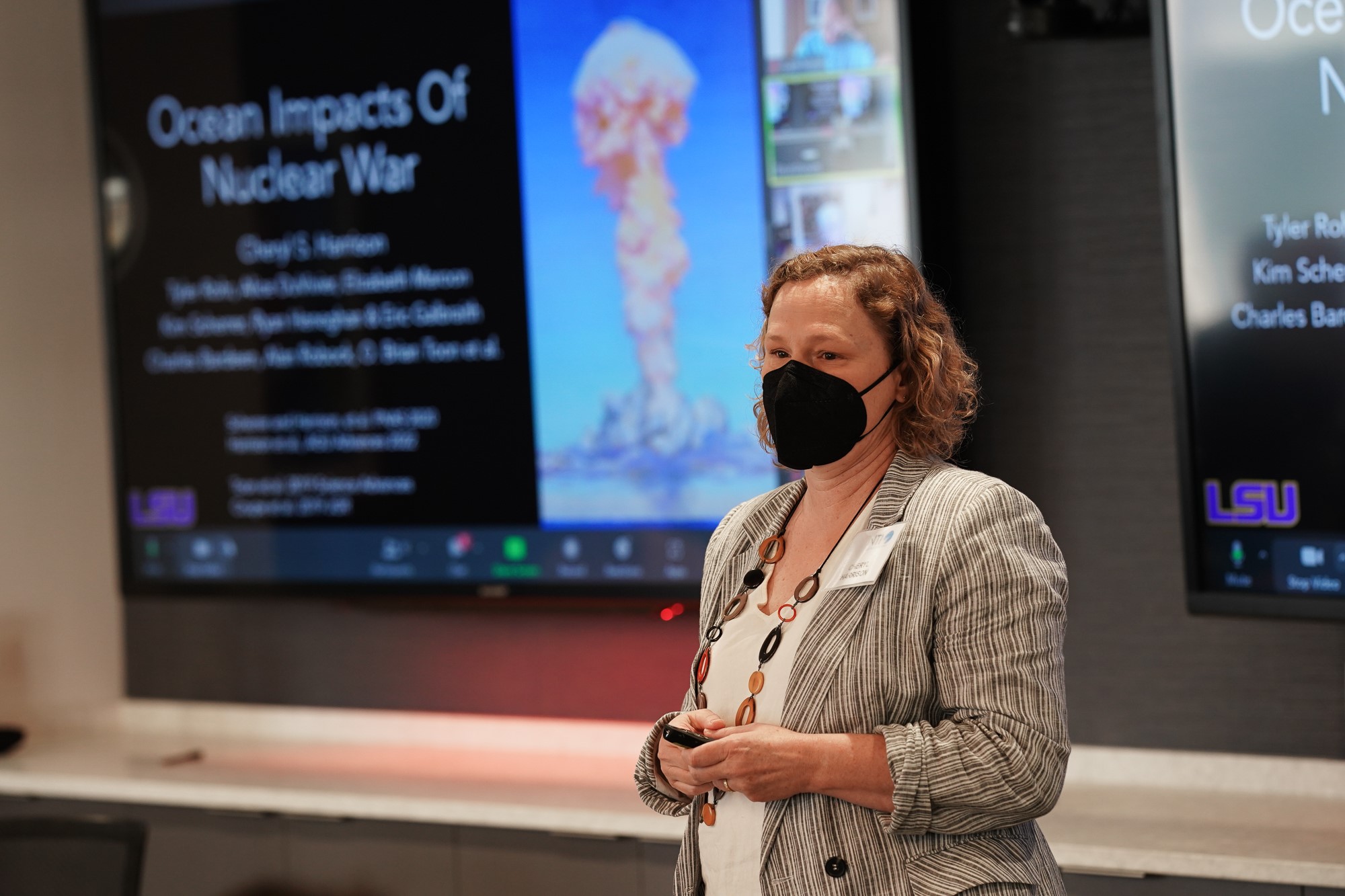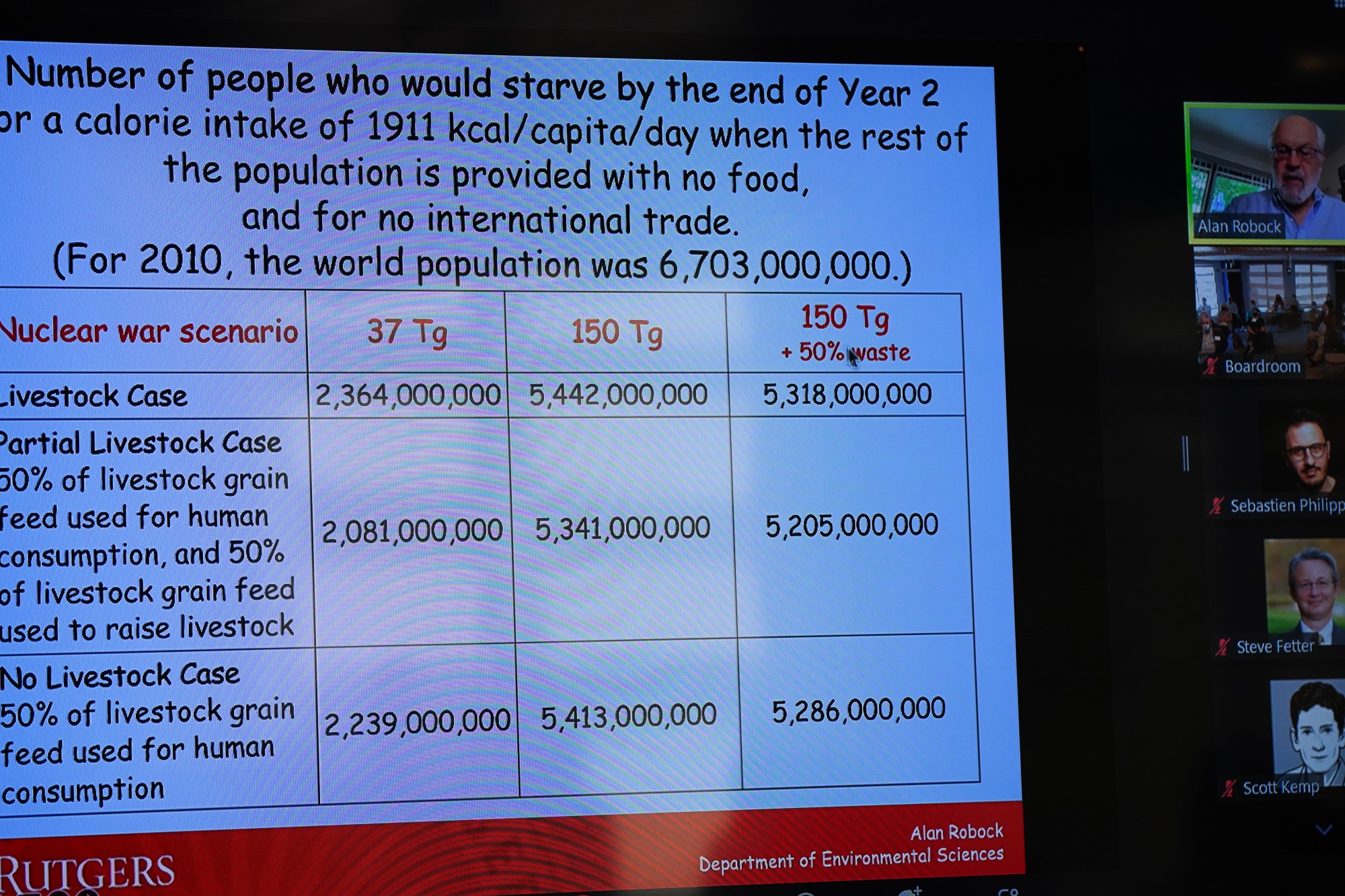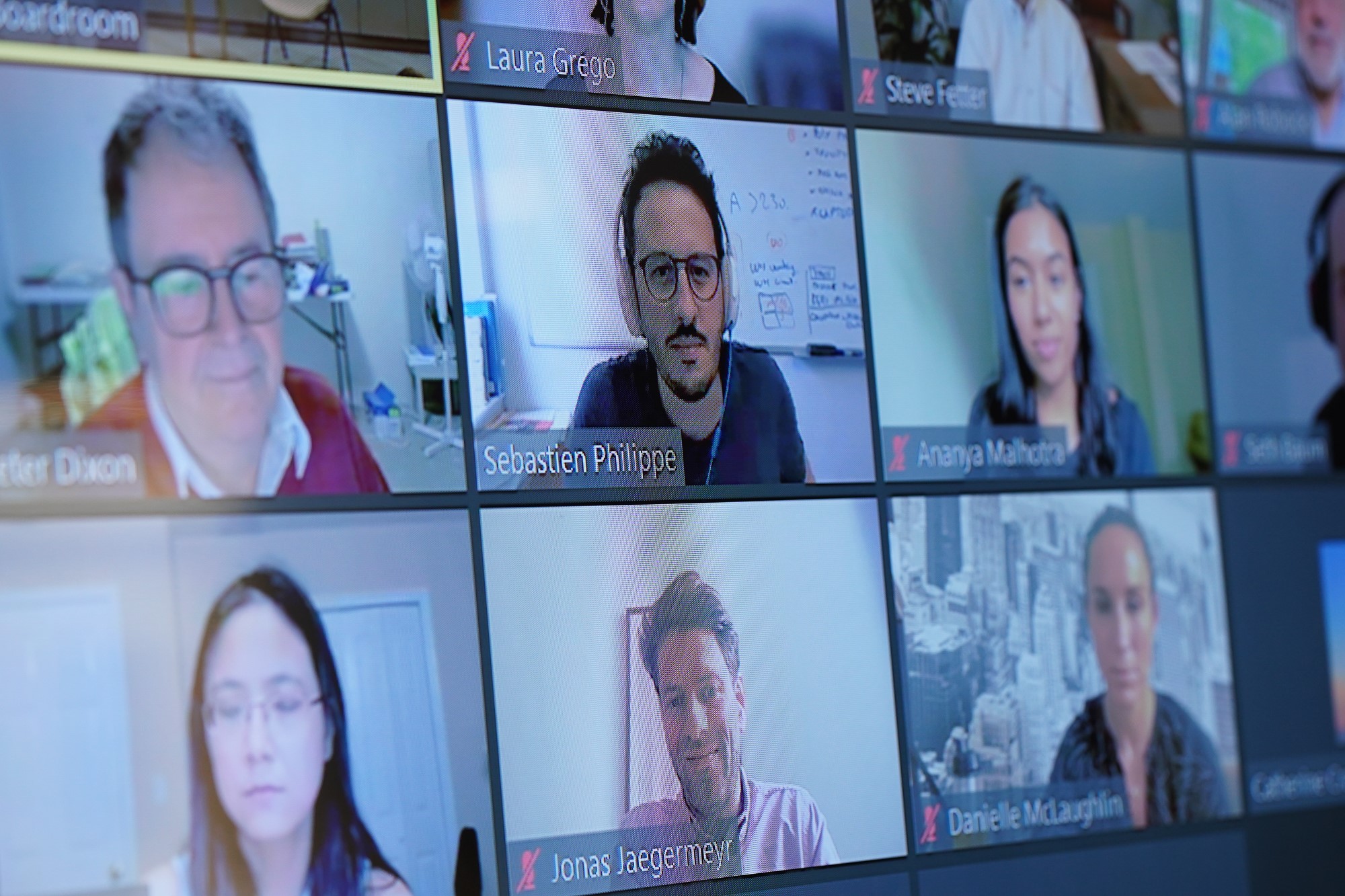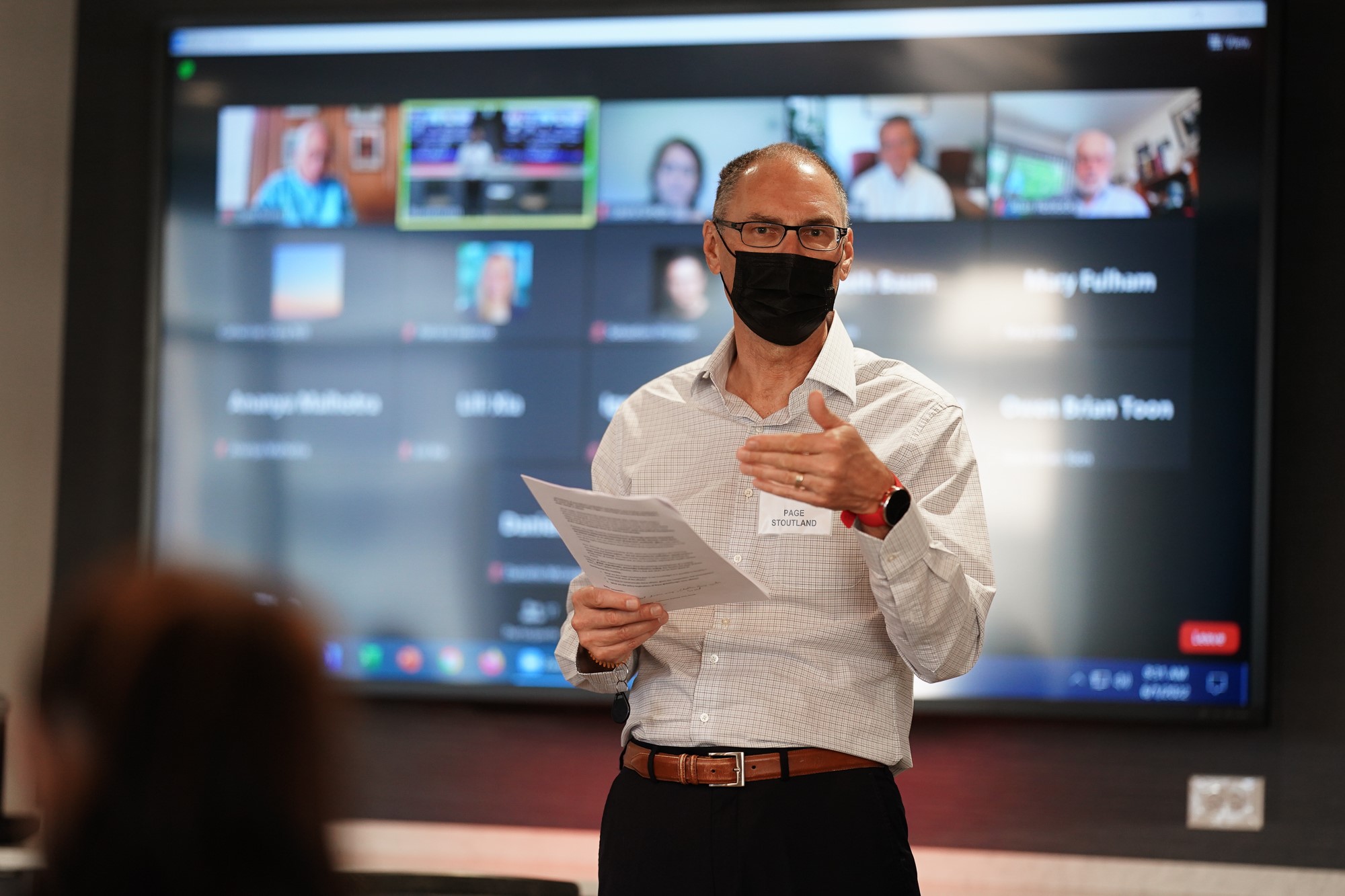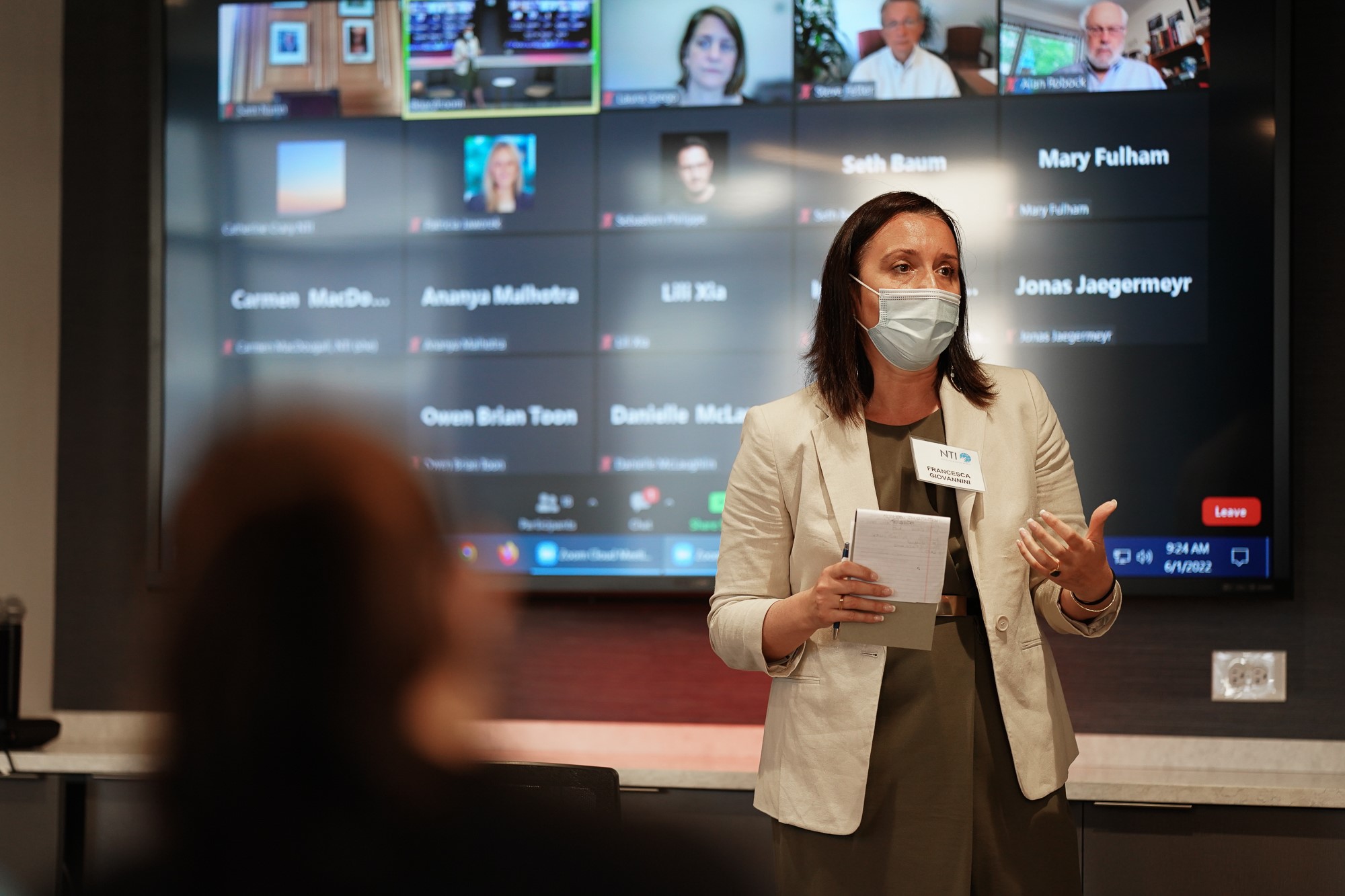More than 40 researchers and scientists with expertise in nuclear security, climate science, agriculture and food security, development policy, engineering, international relations, and economics gathered in person and virtually for a hybrid conference on global nuclear effects convened by the Nuclear Threat Initiative (NTI) on June 1-2, 2022.
Participants assembled to discuss the potential effects of a nuclear conflict, exploring the diverse, cascading, and global second-order consequences of a conflict with nuclear weapons in today’s globalized society. The group worked to define critical questions in areas like food security, supply chain resilience, and disaster management and to articulate what remains unknown about how a nuclear detonation or war would impact human survival and civilization.
As NTI Co-Chair and CEO Ernest J. Moniz explained in opening remarks, “Heat, blast, radiation, and mushroom clouds are all in the popular lore, following [the nuclear explosions that] occurred in Japan in 1945. But we think the estimates of the consequences of a nuclear conflict are outdated and underestimated.” The limited body of modern research that exists on nuclear effects suggests that a nuclear conflict could yield mass starvation, economic collapse, and the end of modern civilization as we know it, the result of multiple, cascading crises and limited resources for individuals, governments, and societies to coordinate and respond.
Page Stoutland, a consultant to NTI’s Scientific and Technical Affairs program, emphasized the urgency behind developing a more precise picture of the ramifications of nuclear conflict today. “There are amplifying and cascading effects that are difficult to predict, but could be catastrophic. Decision makers around the world need to understand this, certainly before they would contemplate any sort of nuclear use,” he said. “We also believe that having a better understanding of the potential global effects will serve to accelerate all threat-reduction efforts.” Stoutland shared his hope that the conference would serve as a launching point for a community of experts that can continue to engage in technical and policy work on nuclear effects.
Francesca Giovannini, principal investigator for the Research Network on Rethinking Nuclear Deterrence, which supported the conference, told attendees, “We talk about nuclear risks in a very sanitized way. … We never actually talk about the consequences [or] what we’re actually talking about in human costs.”
Giovannini continued, “This conference finally brings people back to the table and stops sanitizing the language to bring a really clear understanding of what the risks actually mean.”
